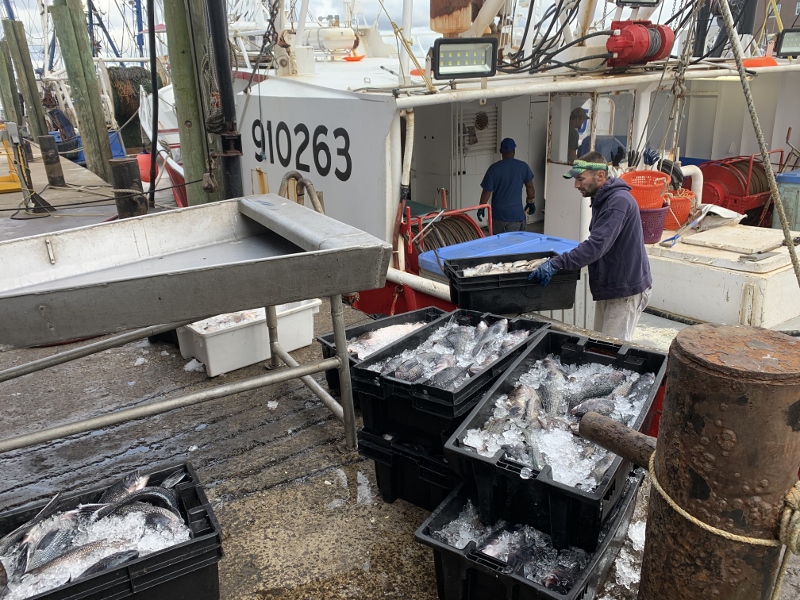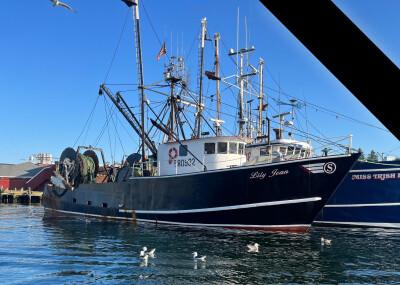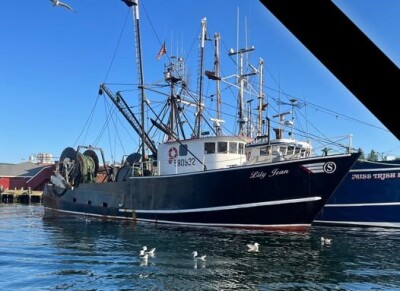Escalating coronavirus closures in Northeast cities have left seafood unsold and boats tied up, threatening to inflict lasting damage on the U.S. fishing fleet.
State governments ordering restaurants to close and people to stay in their homes brought business to a screeching halt at major seafood hubs like Boston and the New Fulton Fish Market in New York City’s sprawling Hunts Point food terminal.
“It’s really serious here. Some buyers have not given us a price, and in some cases, they still have the fish,” said Jim Lovgren, a longtime trawler captain with the Fishermen’s Dock Cooperative in Point Pleasant Beach, N.J.
“The issue here is the restaurants. The average American doesn’t cook fish at home,” said Lovgren. Restaurant and food service buyers account for the vast majority of demand in the fresh fish market, but state orders limiting restaurants to offering take-out service only immediately evaporated those sales, he said.
The crisis hit amid a growing economy and a relatively mild winter with good fishing in the New York Bight. Jumbo fluke that had been bringing $4 a pound at the dock plummeted to 75 cents, meaning “50 cents to the boat,” said Lovgren.
“So, the market is upside down,” he added. Co-op members have even discussed whether they may need to close the dock if those conditions persist.
Some New Jersey-based surf clam boats are likewise tied up, as school closures disrupt clam processors’ workforce availability.
It all makes a spectacle of glaring wastage, with supermarket cases in some neighborhoods swept clean daily of meat and poultry. The retail unavailability of fish, caught just a day’s steaming from major urban centers, is an outcome of decades restricting U.S. fisheries while ceding the marketplace to imports, said Lovgren.
Fleet operators Blue Harvest in New Bedford, Mass., said Monday that the coronavirus crisis could point a way forward and present an opportunity for realigning U.S. consumers with regionally sourced seafood.
The company cited market research by the Nielsen Company into consumer preferences in light of the virus outbreak that is finding “shoppers are exhibiting signs that they may steer away from products that travelled long distances with multiple human touchpoints... consumers have generally displayed strong preferences for local dairy and fresh produce brands and products versus those coming from further afield.”
“As distressing as the current world situation is — both epidemiologically and economically — our New England fisheries need to rise to the challenge to meet the needs of our citizens,” according to Blue Harvest.
“As is widely known throughout the industry, in recent years, many retailers and food service companies in the eastern United States have opted for imported fresh seafood from Iceland and Norway, or previously frozen product from Iceland, Norway or China,” the company said. “But right here in our local New England waters, we have a tremendous natural resource that is underfished and underutilized in our haddock, ocean perch and Atlantic pollock stocks.”
Growing the market using those species to provide a reliable supply chain, with transparency and accountability from boat to plate, is a key strategy for Blue Harvest. Earlier this year the company acquired part of the New Bedford fleet formerly operated by Carlos Rafael and sold under terms of settling fisheries and tax violations that brought him a nearly four-year prison sentence.
“Given the proximity of these stocks to our harbors, markets and transportation infrastructure, there is no risk of supply interruption from disruption of air transport from Europe, or ocean transport of twice-frozen product from China,” according to Blue Harvest. “And there is no risk of reduced availability and resulting price increases from a lack of air freight capacity.”
Blue Harvest said it is instituting new workplace precautions in response to the coronavirus, including:
Sanitizing all common workplace areas in its New Bedford processing plant and ensuring that employees are practicing proper hand washing and disinfecting practices.
“Employees have been told to not come to work if they are experiencing any flu-like symptoms, and employees who wish to do so are allowed to work remotely,” the company said.
Outside access to the plant is now restricted to government, health and safety officials, and those critical to the operation.
On the boats, “captains have been instructed to routinely disinfect common surfaces in all vessels, and to check all crew members for illness prior to boarding the vessel.”







